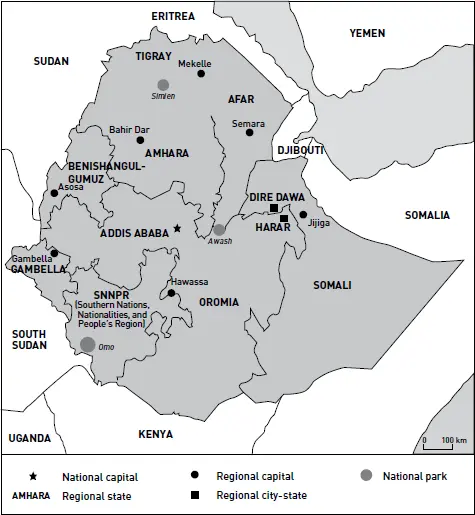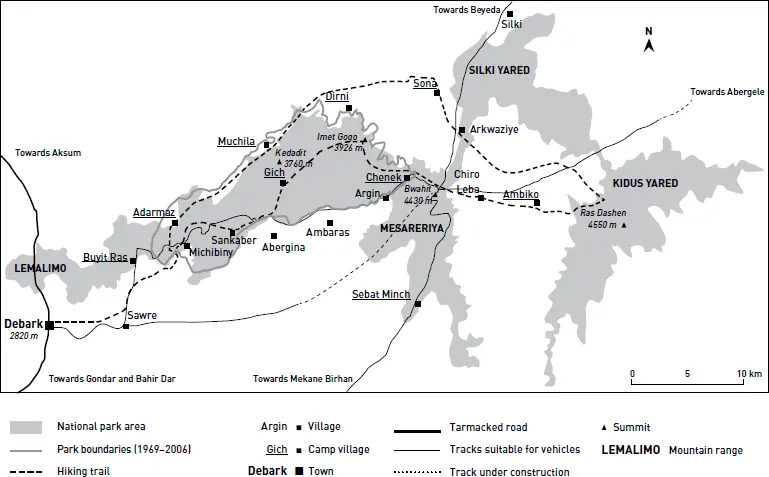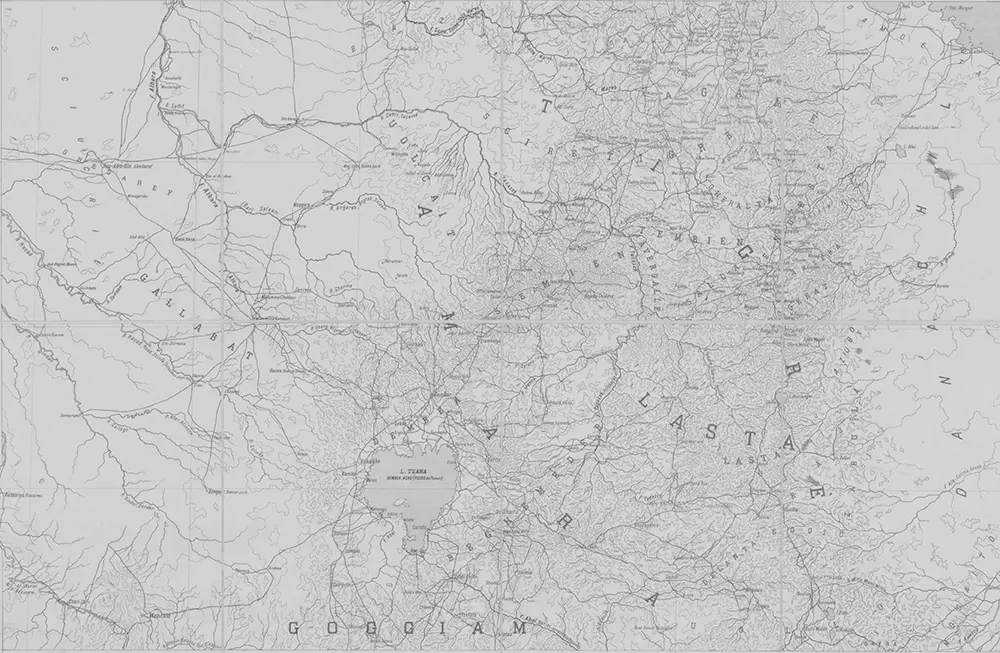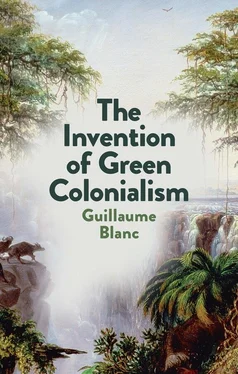This story begins with a dream. The dream of ‘Africa’. Virgin forests, majestic mountains surrounded by savannas, lush oases, vast empty plains marked by the rhythms of animal life, where lions, elephants, giraffes and rhinoceroses reign as lords of nature, far from civilization. All of us carry such images in our heads. Images suffused with a sense of eternity, a reassuring emotion in the face of the damage being inflicted everywhere else in the world by modernity – our modernity.
But this Africa does not exist. It has never existed and the problem is that we have convinced ourselves of the opposite. The more nature disappears in the West, the more we fantasize about it in Africa. The more we destroy nature here , the more energetically we try to save it there . With UNESCO, the WWF (formerly known as the World Wildlife Fund and then as the World Wide Fund for Nature) or the International Union for Conservation of Nature (IUCN), we manage to convince ourselves that, in the African national parks, we are protecting the last vestiges of a world once untouched and wild.
In reality, these institutions are responsible for the rapid naturalization of large areas of the continent. By naturalization, I am referring to the dehumanization of Africa, a process which involves turning territories into national parks, banning agriculture in these areas, evicting people from their homes and getting rid of their fields and grazing land in order to create a supposedly natural world, in which people are absent. And this battle for a phantom Africa has no impact whatsoever on the destruction of biodiversity. On the contrary, this process is proving to have disastrous effects on all of those living in the natural world. The enforced eviction of local people, fines, prison sentences, social breakdown, beatings, sometimes rapes and even murders: these are the catastrophic consequences of this westernized vision of Africa.
This book investigates the mechanisms of this violence. It describes the history and the ongoing reality of the injustice which continues to permeate the lives of those living in or near the African national parks.

Ethiopia and its first three national parks


1Deconstructing Our Beliefs, (Re)thinking Nature
4January 2019, the suburbs of Debark, north of the Ethiopian highlands. Seated on a mattress on the bare ground, in a house constructed of wood and corrugated iron, Samson describes with bitterness the details of his everyday existence since his eviction: ‘They drove us out with sticks. […] They ordered us to leave in the name of UNESCO. […] We just can’t go on living like this. I feel as if I’m dying here.’ 1
The same feelings of despair have haunted Samson’s neighbours since they were brought into the town on 16 June 2016. On that day, in the early hours of the morning, guards from the Simien National Park arrived in Gich, a village with a population of 2,508 inhabitants, perched at an altitude of 3,800 metres. The villagers were agro-pastoralists, which means they combined growing crops and raising livestock on pasture lands. As a result, they were accused of destroying nature. That is why the park guards ended up forcibly evicting them from their mountains. On the evening of 16 June, the entire population of Gich were resettled in Debark, a small town situated 35 kilometres further west, outside the boundaries of the Simien National Park.
The Ethiopian state had succeeded, at last. In 1978, UNESCO had placed the Simien National Park on its list of world heritage sites but, in 1996, the park was relegated to the List of World Heritage in Danger. According to international experts, the reason for this change was that by cultivating the land and raising livestock, the local people were damaging the natural environment. 2Evicting them was seen as the solution to the problem, and, as a result, UNESCO offered its congratulations to Ethiopia, announcing on 12 July 2017 that the Simien National Park would be removed from the List of World Heritage in Danger.
The institution had yet another demand to make. Several thousand agro-pastoralists were still living in the park and UNESCO requested that they also be evicted. The Ethiopian leaders were ready to make this sacrifice because, as far as they were concerned, what mattered was to finally receive the reward for which they had waited twenty years: the reinstatement of the Simien Park on UNESCO’s prestigious list of world heritage sites. 3
This victory came at a single price: the village of Gich. On the day following the eviction, the other inhabitants of the park entered the village. They dismantled the houses abandoned by their former neighbours and took away with them the wood they needed for cooking and keeping warm. As for the former inhabitants of Gich, they would try to adjust to the urban lifestyle imposed upon them. With little success. ‘I can’t take any more,’ Samson tells us, three years later. ‘It’s either death or a return to our land.’
Social injustice and ecological absurdity
It was thanks to Samson that I was able to find out more about this national park. That is not his real name, since for him, and for all the inhabitants cited in this book, caution requires that their anonymity be respected. In Paris, teachers at Inalco (Institut National des Langues et Civilisations Orientales) taught me the basics of Amharic, the Ethiopian lingua franca . In Addis Ababa and in Debark, officials from the EWCO (Ethiopian Wildlife Conservation Organization) granted me access to their entire archive – almost 20,000 pages of correspondence, minutes and progress reports. And, from 2007 onwards, the inhabitants of Simien have made me welcome in their mountains. On each of my visits there, they have helped me understand that living in the Simien Park means living illegally. Since cultivating the land and raising livestock are punishable by law, being born in a national park means being a squatter in your own home.
This story has revealed a world whose existence I did not even suspect. I thought that the African parks were harmonious natural spaces. Instead, I discovered whole areas undermined by violence.
I say ‘the African parks’ because the Simien is by no means an isolated case. There are around 350 national parks in Africa, and in most of them, local populations have been driven out in favour of either animals, forests or savannas. This is the case in 50% of parks in Benin, 40% of parks in Rwanda and 30% of parks in Tanzania and in the Democratic Republic of the Congo. Over the course of the twentieth century, at least a million people were driven out of protected zones in Africa. 4And in those parks which are still inhabited, agriculture, pastoralism and hunting are largely forbidden and punishable by fines or prison sentences. It is not therefore Ethiopia’s attitude to nature which constitutes an exception in the world, but rather the world’s attitude to nature in Africa. For over a century, under the influence of experts from the North, this coercive naturalization of specific areas has affected every single country within the continent.
These environmental policies were devised by Europeans during the period of colonization. And, since independence, they have been implemented by individual African states. The leaders of these states have sovereignty yet they systematically bow to any orders imposed by the international conservation institutions. 5Behind every incidence of social injustice imposed on those living in natural environments throughout Africa, the presence of UNESCO, the WWF, the IUCN or Flora & Fauna International (FFI) is never far away.
Читать дальше















